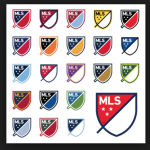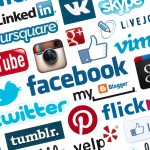 Ever feel like your business is spinning out of control? Too busy, not busy enough, competition pressures, government red tape, taxes, employee issues, the list can go on and on. We love the concept of control because it gives us predictability, something we can count on, something to calm our fears. Yet control can be elusive.
Ever feel like your business is spinning out of control? Too busy, not busy enough, competition pressures, government red tape, taxes, employee issues, the list can go on and on. We love the concept of control because it gives us predictability, something we can count on, something to calm our fears. Yet control can be elusive.
Take, for example, your brand. We marketers refer frequently to the importance of trying to control your brand. Obviously, social media has made this effort much more difficult but consider something as simple as your identity (including the logo). We generally recommend that in your strategic marketing plan, you include a style book which dictates exactly how your logo will be portrayed in various kinds of media. The style book governs how and where your logo can appear and specifies the exact color or colors (generally no more than two) that are allowed. It is how you control that branding element. Consider brands like A.T.&T., Coca-Cola, Microsoft, and UPS. No one is allowed to change the presentation of these logos or their colors. Yet…maybe that has all changed.
Major League Soccer (MLS) announced a new identity and branding with the commencement of its 2015 season this spring. Not to be outdone by other sports like Major League Baseball, the NCAA basketball tournament, or the FIFA Women’s World Cup, the launch of the new campaign came replete with a shiny new logo. The logo comprises a shield outlined with blue, a blue diagonal line extending outside the shield, and the top left half with three stars, the letters MLS and seated in a field of red. Whether you like this logo or not is not what is curious. What blows the mind this marketer is that the MLS has allowed each one of the teams to alter the colors of the logo to match their respective uniforms! This even extends to the goalkeepers’ uniforms that are even different colors than the team colors!
Unheard of, I say. Can you imagine the NFL doing this? What about the NBA or Major League Baseball? These organizations don’t care what color your uniforms are, their logo must be presented exactly the same, even if that color clashes with your team colors.
I would say this is revolutionary, especially for a brand as young as the MLS.
So, is giving up control of your brand and logo the wrong thing to do? I would imagine that the MLS has not given up complete control, but stipulates the options each team has in using the league logo. It will be an interesting study to see how this turns out. No one can deny that the MLS is successful, having two new expansion teams this year and showing every sign of drawing larger and larger viewership and fan base.
Yet, it will be interesting to see if this is a trend that will extend to other industries, associations and non-profits.
I would love to know your thoughts.



